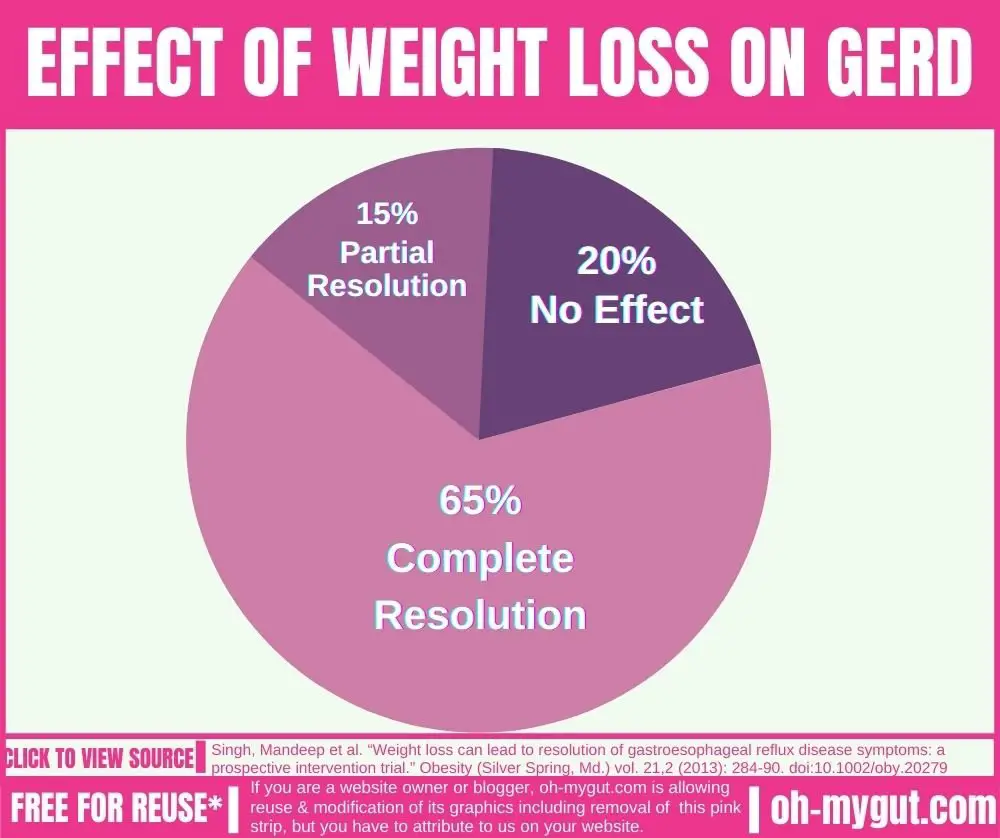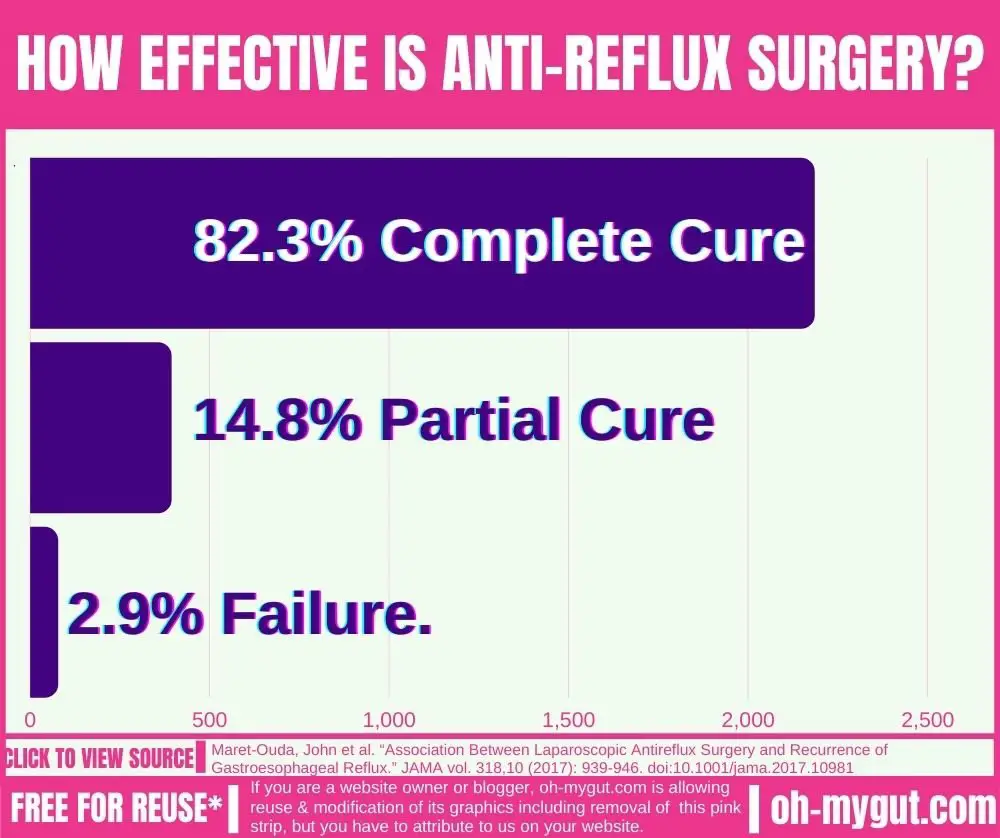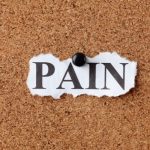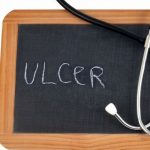How Long Does GERD Take To Heal?
1- What you need to know:
- The time needed for GERD to heal depends on many factors, such as the degree of damage, the type and dose of your medications, and your compliance with diet and lifestyle changes.
- The average time needed for GERD esophagitis to heal is about 2-8 weeks (ref).
- The average time needed for GERD throat (laryngopharyngeal reflux) may be longer, and the response is variable.
- The most effective natural treatments that can heal GERD are weight loss (if you’re obese) and anti-reflux surgery (If indicated).
2- Can GERD Be cured permanently?
GERD is a widespread condition. About 10 to 20% of people have acid reflux (GERD) in the Western world (ref). We classify GERD (chronic acid reflux) into two main categories (ref):
- Physiological GERD: Mild to moderate symptoms, infrequent, and you can easily control it with diet and lifestyle modification.
- Clinically significant GERD: It is more severe; attacks are more frequent and occur at night. This is the type of acid reflux you probably are here for.
Generally speaking, GERD (chronic acid reflux) is a treatable (not curable) disease (ref).
“Treatable” means that treatment can slow, control, or even reverse disease progression. “Curable” means treatment can result in a complete and permanent disease resolution.
For example, IBS, hypertension, and diabetes mellitus are “treatable” diseases (GERD). While other diseases, such as tonsilitis and wound infection, are “curable.”
Diet, lifestyle modifications, and medications can dramatically improve your GERD symptoms. However, they are not usually able to permanently “cure” your GERD.
In certain circumstances, You can cure GERD permanently, especially if your GERD is related to Obesity or Hiatus hernia. Also, scientific evidence showed that weight loss (if you are obese) and anti-reflux surgery can provide a permanent cure for GERD (chronic acid reflux).
In this study, Weight loss in GERD patients resulted in:
- Complete resolution “cure” in 65% of GERD patients.
- Partial resolution in another 15%.
That’s MASSIVE; you only have an 80% chance of healing your GERD by losing weight.

Another interesting large-scale study showed that anti-reflux surgery (for eligible patients) can heal GERD permanently.
From 2655 People who underwent anti-reflux surgery:
- 82.3% were permanently cured of acid reflux (GERD).
- 17.3% had some sort of symptom recurrent after the anti-reflux surgery.
SO, anti-reflux surgery (for eligible people) and weight loss (if you are obese) are more likely to heal your GERD than diet, medications, and lifestyle modification.

For detailed, evidence-based answers to your question (can GERD be cured permanently, READ HERE.
3- How long does GERD take to health with medications?
The most commonly used medications to treat GERD are Proton Pump inhibitors (PPIs). They decrease acid production inside your stomach and consequently prevent acid-induced damage to your esophagus (ref).
We (doctors) consider PPIs the gold standard for acid reflux (GERD) treatment. Common PPIs include:
- Omeprazole (Prilosec ®).
- Esomeprazole (Nexium ®).
- Pantoprazole (ProtonIX ®).
- Rabeprazole (Aciphex, Pariet ®).
- Dexlansoprazole (Dexilant ®).
Acid reflux mediations other than PPIs include:
- H2 blockers: such as Famotidine (Pepcid).
- Antacids: such as Tums, Milk of Magnesia, Gaviscon, Maalox, and Pepto-Bismol.
- Prokinetic Medications: such as Metoclopramide and Itopride.
GERD and GERD-related esophagitis and esophageal erosions take about 2-8 weeks to heal with medications (PPIs). According to research, The 8-week course of PPI successfully heals erosive GERD esophagitis in about 86% of cases.
4- Can GERD heal without medications? How long does it take?
According to the current evidence, Clinically significant GERD with esophagitis is less likely to heal without medications in the short term.
Acid-reducing medications are necessary for the majority of cases. These medications (such as PPIs) help the healing of GERD and GERD-related esophagitis.
Diet and lifestyle modification without medications will not likely heal the damage caused by acid reflux to your esophagus.
Don’t rely on natural treatments alone without medical advice and treatment from your doctor.
Undertreated chronic acid reflux may lead to profound damage to your esophagus.
With more severe acid reflux, your esophagus can develop a precancerous condition called “Barret’s esophagus” (ref).
In special circumstances, GERD can be cured permanently without medications. For example, anti-reflux surgery (if you have a hiatus hernia) or weight loss ( if you are obese).
But, The majority of people will need medications to heal the esophagus and prevent damage and complications.
5- How long does GERD Throat take to heal?
GERD throat (Laryngopharyngeal Reflux) takes longer to heal than GERD esophagitis. According to clinical data, GERD throat takes about a 6-month of Proton Pump inhibitors (PPIs)to heal (reference). However, The response to PPI in Laryngopharyngeal reflux (GERD throat) is variable in clinical trials (reference).
Uptodate.com says PPIs are not recommended for laryngopharyngeal reflux without GERD symptoms (such as heartburn).
Diet is very important to control GERD throat. To heal GERD throat, Avoid foods that may trigger the condition (ref):
- Caffeine, such as coffee and other caffeinated drinks.
- Alcohol.
- Chocolate.
- Peppermints and peppermint oil supplements unless prescribed by your doctor.
- Carbonated beverages.
- Smoking (Nicotine exposure).
- Acidic foods such as tomatoes and citrus fruits.
- Spicy foods.
Avoiding trigger foods, eating small meals, and avoiding meals before sleep improves GERD throat significantly. Also, these behavioral changes decrease the time needed to heal GERD throat.
Always ask your doctor about the best treatment for your GERD-related throat inflammation.
MORE: How Long Nexium Takes to Heal GERD, Ulcers, Gastritis, and LPR?







